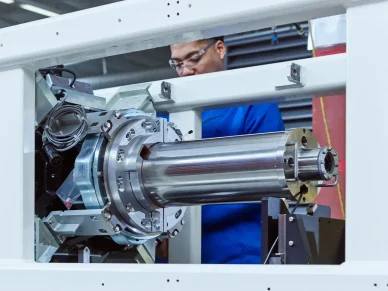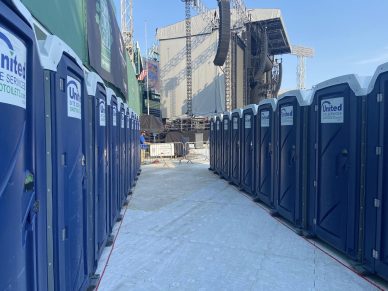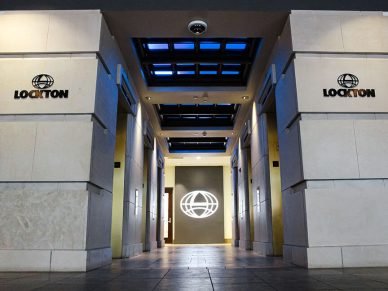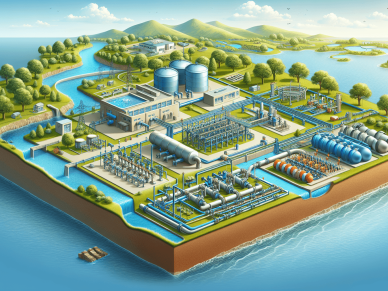There are a lot of components to a successful company. There are the sheer logistics involved in sourcing and shipping products nationwide or even worldwide. Public companies have shareholders to answer to and keep satisfied. There’s ensuring your products maintain their quality from year to year despite any number of unforeseen changes that could affect them. There’s competition to keep up with, new ways customers want to shop, and groundwork for the future that needs to be laid. What remains constant for the most successful organizations is the mission, the sense of purpose that drives them. For many of them, it’s trying to make the world a better place, and we celebrate those companies doing good.
Patagonia

A 1% for the Planet organization, Patagonia gives 1% of its sales to environmental nonprofits. Not content with that, founder Yvon Chouinard and his family donated the company’s non-voting stock, worth about $3 billion, to fighting climate change. Any profit that does not get reinvested into the business will go to environmental causes, a figure that could be $100 million a year. “We needed to find a way to put more money into fighting the crisis while keeping the company’s values intact,” Chouinard said in a statement. “… Truth be told, there were no good options available. So, we created our own.”
Ben & Jerry’s

Known for creative flavors, the ice cream maker was the first of its kind to use only Fairtrade Certified ingredients. The founders have made their company an activist for causing going back to the ’80s, when they opposed the use of recombinant bovine growth hormone, citing its “adverse impact on family farming.” They protested oil drilling in the Arctic National Wildlife Refuge with a 900-pound Baked Alaska at the U.S. Capitol. Ben & Jerry’s “Mootopia” initiative seeks to reduce emissions at 15 of its supplier farms to half the U.S. industry average by the end of 2024, and they have supported numerous humanitarian causes.
World Wildlife Fund

The good they do is right there in the name, but the WWF does so much more than protect animals, working in more than 100 countries to help communities conserve natural resources and build a sustainable future. One of its goals is to help the world “produce enough food to nourish everyone while reducing the environmental footprint of food systems.” To that end, the WWF supports projects that make better use of fresh water in farming, including more efficient ways to grow sugarcane, one of the most water-intensive crops humans plant.
Trader Joe’s
In response to customer feedback, the grocery chain has eliminated single-use plastic bags in its store and replaced them with biodegradable and compostable alternatives. Styrofoam in produce packaging is gone in favor of biodegradable trays. That saved over 4 million pounds of plastic in 2021. To reduce food waste, Trader Joe’s sells, composts, or donates 99.5% of the food in its stores. Partnering with the likes of Feeding America through its Neighborhood Shares program, Trader Joe’s donated $349 million worth of products to nonprofits in 2021 and provided nearly 63 million meals.
Bombas
Every time a customer buys socks, underwear, or a T-shirt from Bombas, the company makes a similar donation to one of its 3,500-plus charitable partners. That has resulted in 75 million items donated to date, with socks, underwear, and T-shirts being the three most requested items at homeless shelters. Bombas works with its partners to determine the right sizes and quantities of items they need so that community needs are met and charities aren’t stuck with overstuffed storage space. “These are more than pieces of clothing,” the 2022 impact report states. “To some, they represent a helping hand, a sign of support, or the chance to start a meaningful conversation.”
Toms
Like Bombas, Toms started off donating a pair of children’s shoes for each pair it sold. The company has since expanded the range of its philanthropy and now donates a third of its profits “for grassroots good” including mental health organizations and building equity in marginalized communities. Leaders of their partners “have the vision and networks to address” the problems facing their communities, “but they don’t always have the resources to bring their solutions to life. That’s where Toms support comes in.”
Warby Parker

Another company that gives in-kind donations to charity for every purchase, the glasses maker has distributed more than 10 million pairs of glasses around the world. More than 1 billion people are in need of glasses, and Warby Parker strives to provide basic eye exams and glasses at very affordable prices in instances where it does not donate outright. The company’s Pupils Project provides free screenings, exams, and glasses to schoolchildren in the U.S. A study published in the Journal of the American Medical Association found that reading and math scores improved for significantly for kids who got badly needed glasses.
Dr. Bronner’s

The family-owned personal hygiene company won the 2020 Zero Waste Hero Award from Zero Waste USA and is working toward landfill-free manufacturing. While the long-term goal is eliminating plastic packaging from its products, in the short term, Dr. Bronner’s uses post-consumer recycled plastic for almost all its bottles and was the first American company to package liquid soaps in 100% post-consumer recycled bottles. The book “Honor Thy Label” details Dr. Bronner’s commitment to green and ethical supply chains and its Regenerative Organic and Fair for Life certifications.
















Leave a Reply